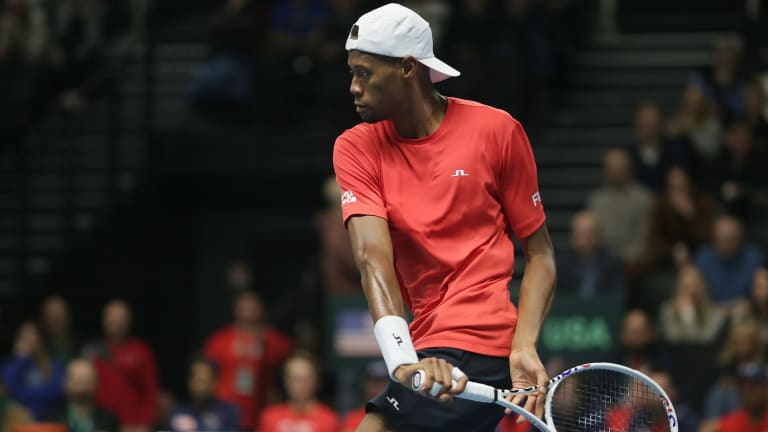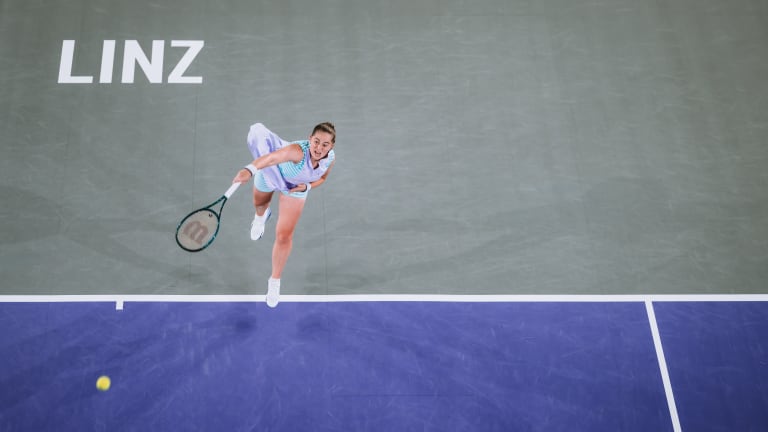Weekend Winners
Chris Eubanks wins his first match for his country, and it may not be his last
By Feb 05, 2024Weekend Winners
How Carlos Alcaraz put a 'difficult month' behind him with his first Monte Carlo title
By Apr 13, 2025Weekend Winners
With clay titles, Jenson Brooksby and Jessica Pegula made 2025 all the more promising
By Apr 07, 2025Weekend Winners
Jessica Pegula and Emma Navarro got up after early-season stumbles to win their first titles of 2025
By Mar 03, 2025Weekend Winners
Carlos Alcaraz, Belinda Bencic or Denis Shapovalov: Whose title run could be the most significant for 2025?
By Feb 10, 2025Weekend Winners
Felix Auger-Aliassime—surprise, surprise—becomes the first two-title men’s champ of 2025
By Feb 02, 2025Weekend Winners
The Top 5 most important developments of a manic first week of the 2025 tennis season
By Jan 05, 2025Weekend Winners
Giovanni Mpetshi Perricard, Jack Draper show big-match poise in Basel, Vienna
By Oct 27, 2024Weekend Winners
Antwerp champion Roberto Bautista Agut represents a generation that refuses to go quietly
By Oct 20, 2024Weekend Winners
"What just happened?" Alexei Popyrin joins Jessica Pegula in making pre-US Open statement
By Aug 13, 2024Chris Eubanks wins his first match for his country, and it may not be his last
Plus: Jelena Ostapenko shows that irrational hope may be her ticket back to the top.
Published Feb 05, 2024
Advertising
Advertising

Chris Eubanks was inspired, if a bit nervous, in his Davis Cup debut. “I had a lot of guys I didn’t want to let down.”
© 2024 Getty Images
Advertising
Advertising

“I think I feel like I’m more mature and confident with my game, so it motivates me more and more to work hard and get back to the Top 10,” says Jelena Ostapenko, who has won two titles this season already.
© Getty Images for MatchMaker